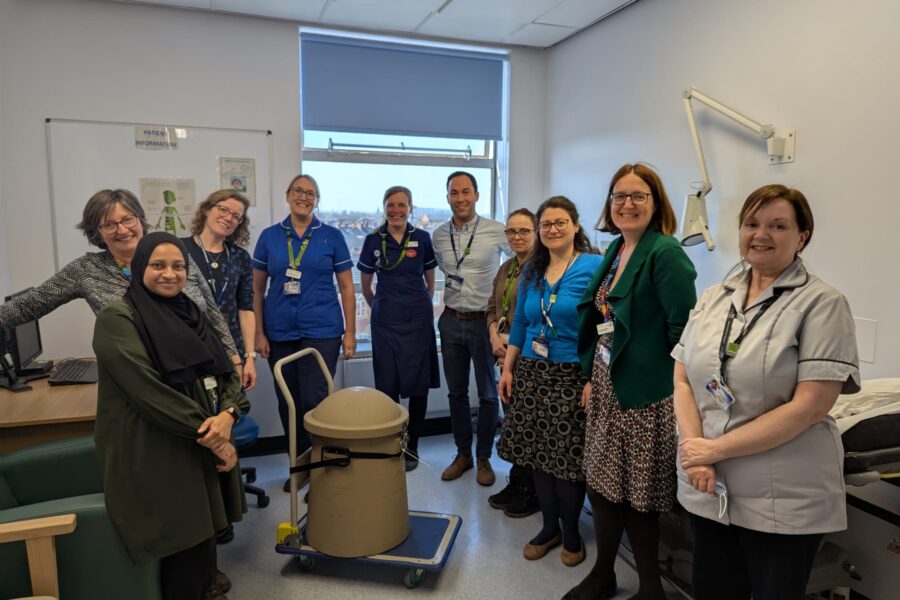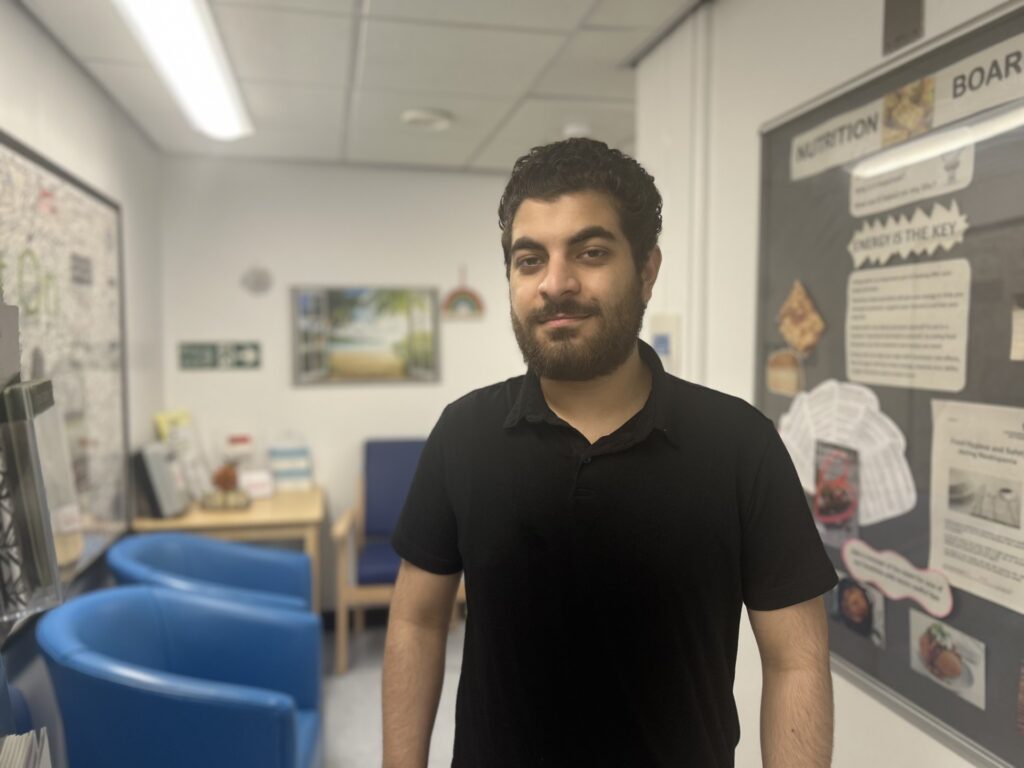
A groundbreaking blood cancer treatment that involves transforming cells in the immune system so they can attack and destroy cancer cells is being delivered at the University Hospitals of Leicester NHS Trust (UHL) for the first time.
Chimeric antigen receptor T-cell therapy – or CAR T-cell therapy for short – is a new personalised treatment, which uses the patient’s own genetically modified immune system cells (T-cells) to target and kill cancer cells.
It involves removing T immune cells from a patient’s blood and modifying them to become CAR T-cells that are then transplanted back into the patient. The CAR T-cells can recognise a specific protein on cancer cells and attach to it, allowing them to attack the cancer.
The treatment is very specialist and is only available in a few centres nationally for patients with specific cancers, including B-cell lymphomas and acute lymphoblastic leukaemia (ALL), where other treatments have not worked.
One of the first patients to receive this new treatment at the Leicester Royal Infirmary was 23-year-old Emirhan Ulgen (pictured below), from Leicester, who was diagnosed with Lymphoma in 2024.

He said: “Before this treatment I was having chemotherapy, and I was not well at all. I was one of the first to receive CAR T-cell therapy in Leicester and since I have started this new treatment, I have been told that my cancer is in remission. They take my blood, and they send it away to make it stronger and then it is given back to me to help my immune system fight off the cancer.”
The treatment is being delivered by the lymphoma and acute leukaemia teams from the Haematology Department, at the Leicester Royal Infirmary.

Paul Player (pictured above), Consultant Haematologist at UHL, said: “CAR T-cell therapy is a highly-specialist and groundbreaking immunotherapy treatment that has shown very positive results for many patients. Until now, this treatment has not been available locally, so patients have had to travel to other parts of the UK to receive it. It is very exciting that they can now access this highly innovative treatment close to home and we are already seeing excellent results.”
While the patient’s CAR T-cells are being produced for them, patients will often be given chemotherapy or radiotherapy to prepare their body for treatment. Then, when their CAR T-cells are ready, patients will be admitted to the haematology ward of the Leicester Royal Infirmary. The CAR T-cells will be given to them in a transfusion that takes around 30 minutes. As it is a very intensive treatment and people’s immune systems can react in different ways to it, patients will be closely monitored for the first few weeks afterwards.
Patients who are interested in accessing the new treatment should discuss the treatment, or their suitability, with their clinician in the first instance.